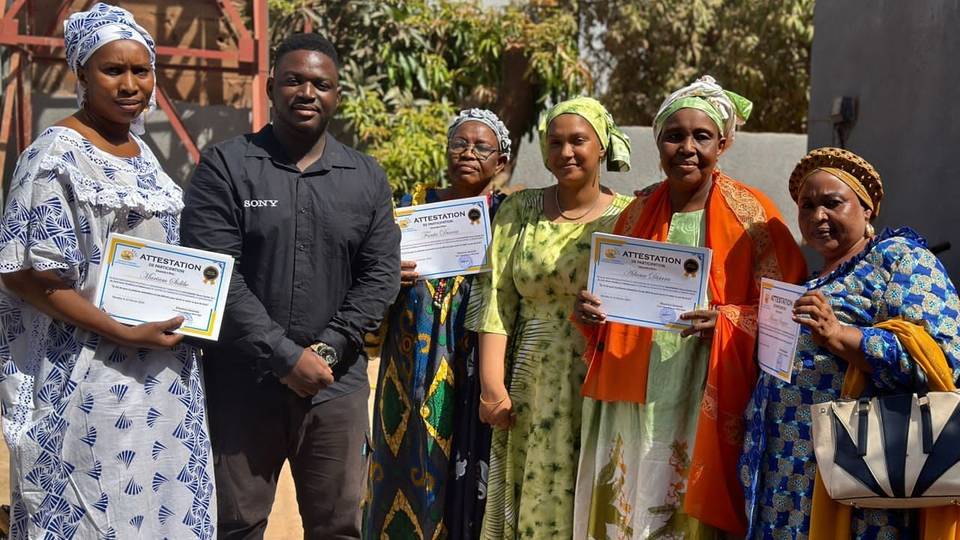Dollar
35,2081
-0.06 %Euro
36,7707
-0.07 %Gram Gold
2.966,0300
-0.08 %Quarter Gold
4.938,1500
0.00 %Silver
33,4100
-0.08 %
By Firmain Eric Mbadinga
Widows in Mali's capital, Bamako, are finding a new meaning in life and embarking on the road to success thanks to the efforts of a local entrepreneur.
Businessman Boubou Dabo runs a soap manufacturing company in Garantibougou Nerecoro district of the city, but besides seeking profit, the 30 year-old is also keen on developing sense of communal solidarity.
At least once a month, the Franco-Malian entrepreneur shares the secrets of soap making with widows to equip them with skills that can lift them out of their precarious financial situation.
Young people and other interested parties are also included in the initiative.

Meeting demand
Whether in liquid, powder, or solid form, soap is an essential part of life. In Mali, a country of over 20 million people, the demand for soap remains high throughout the year.
To meet this demand and reduce the country's dependence on soap imports, entrepreneurs like Boubou Dabo are among those filling the gap.
''My business is called Savon Kaarta. The name refers to my community and my region between Mali's Kayes region and Bamako, the Malian capital.
"And I am proud to name my business after this locality which has diversity of cultures and the value of its people," says Boubou Dabo.
Develop brand

Dabo learnt the tricks of the trade at a vocational training centre in the country. And six years in the business, he has succeeded to develop his brand of soap in all its forms in the market.
He has also been organising workshops to give widows in his community the ability to be employed or self-employed through soap making.
''Soap as a basic substance is obtained from a mixture of palm oil, water, caustic soda, coloring and perfume. The quantity of each element depends on the mass of soap you want to obtain. So it's the chemical reaction of all these elements that gives you the soap, which actually appears as a paste," explains Dabo.
He has managed to develop a customer network in neighbouring countries, including Senegal, Burkina Faso and Guinea. Some of his soaps have also been sold in Cameroon and France.

Dabo says he was taught many human values during his childhood years, including the importance of showing solidarity with others. It remains a strong driving force even in his entrepreneurship.
''I'm happy to be able to train and help people who come to me for training and entrepreneurship. Some of them have started their own soap making and sales businesses and employing several people."
"My conclusion is that we should all try to learn, contribute to personal development and to the development of the country. Soap-making is a sector that is currently very interesting and very profitable," reveals the entrepreneur.
As part of his commitment to his community, Dabo lobbies for people who need all kinds of help and assistance. This has on occasion led to donations of technical equipment from his social circles in France.
➤Click here to follow our WhatsApp channel for more stories.
















Comment